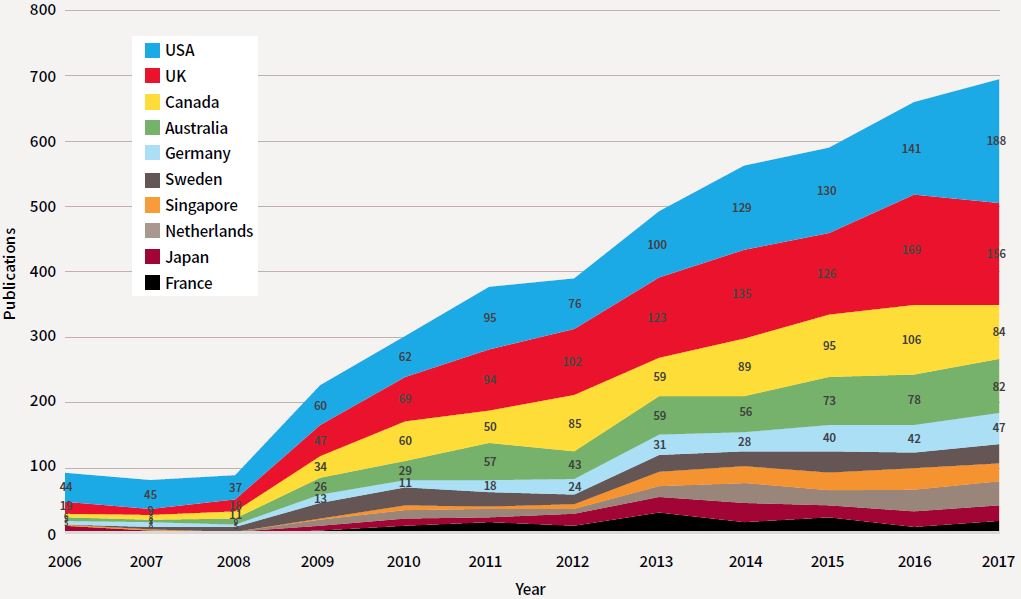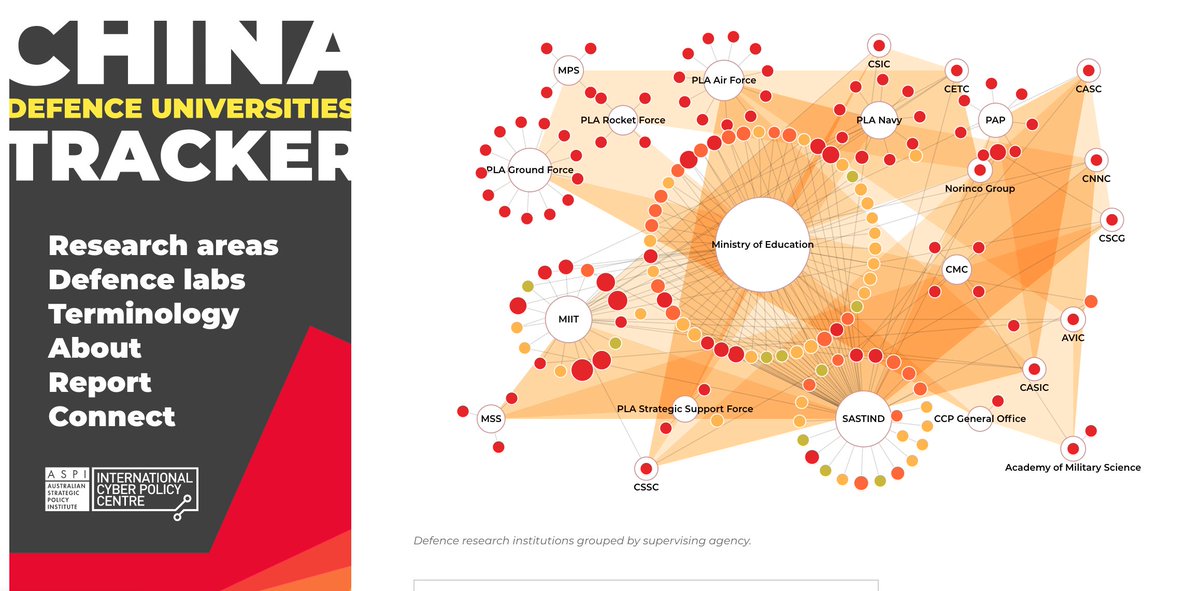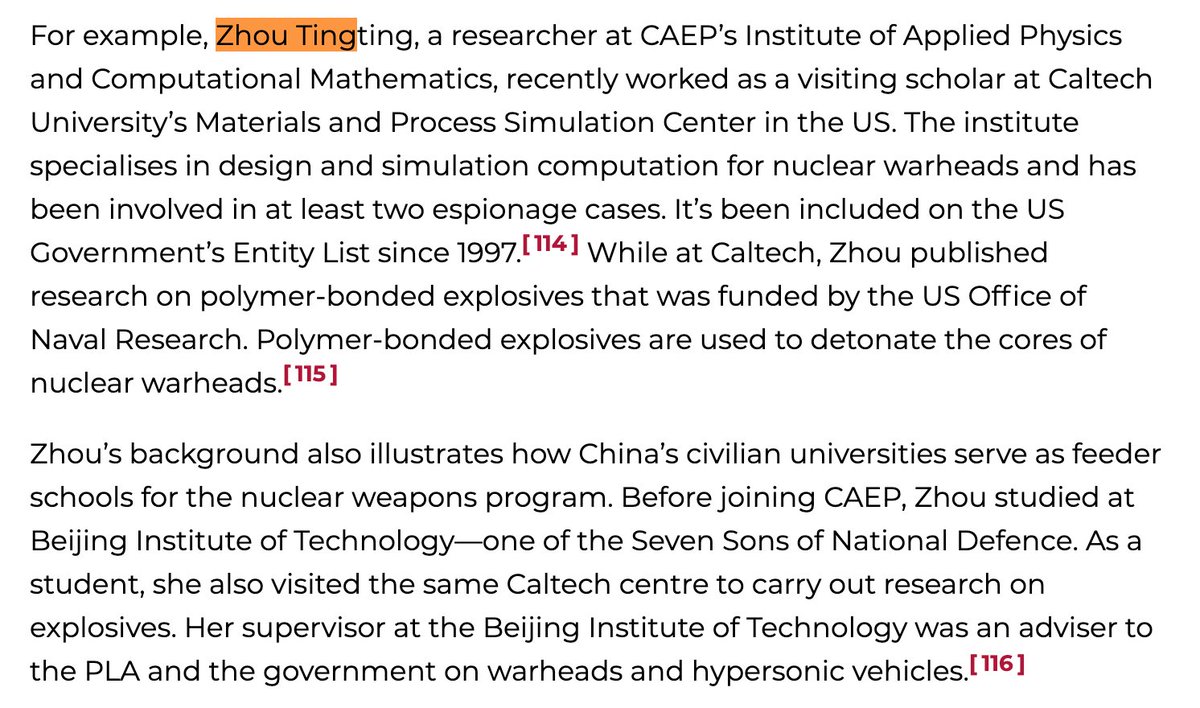Groundbreaking precedent: US to cancel visas for Chinese military scientists. Affirms @ASPI_ICPC& #39;s ongoing research into implications of military-civil fusion and research collaboration. Other countries should do the same. 1/ #click=https://t.co/Ki1zUemvod">https://www.nytimes.com/2020/05/28/us/politics/china-hong-kong-trump-student-visas.html #click=https://t.co/Ki1zUemvod">https://www.nytimes.com/2020/05/2...
Since 2007, roughly 3k People& #39;s Liberation Army scientists have been sent overseas to work on dual-use technologies. Aside from the US, Australia, Canada, Germany, Singapore and UK are also major destinations for these scientists. 2/ https://www.aspi.org.au/report/picking-flowers-making-honey">https://www.aspi.org.au/report/pi...
But the problem isn& #39;t just with scientists directly from the military. @ASPI_ICPC& #39;s China Defence Universities Tracker showed how some civilian universities, like the so-called & #39;Seven Sons of National Defence& #39;, are attached to the military. 3/ https://unitracker.aspi.org.au/ ">https://unitracker.aspi.org.au/">...
For example, Harbin Institute of Technology has a defence research budget roughly the same size as the Australian government& #39;s. Missiles are one of its specialisations. It& #39;s also one of China& #39;s best funded and most internationally engaged universities. https://unitracker.aspi.org.au/universities/harbin-institute-of-technology/">https://unitracker.aspi.org.au/universit... 4/
Even scientists from China& #39;s nuclear weapons program have been allowed to study in Australia, UK, US etc. Here& #39;s one example: 5/ https://www.aspi.org.au/report/china-defence-universities-tracker">https://www.aspi.org.au/report/ch...
Apart from the US, countries have few restrictions of technology transfer within country. By going overseas these military scientists are able to bypass export control laws and study technologies that couldn& #39;t be exported to them. 6/
However, most countries have been focused on grappling with dual-use technologies and which ones to restrict exports of. Chinese military scientists working on emerging tech slip through. US move will be an important step towards greater emphasis on scrutinising end users. 7/
But it& #39;s always going to be hard to know where to draw the line with Chinese institutions. PLA and the & #39;7 Sons of National Defence& #39; are easy. But what about Tsinghua? It& #39;s China& #39;s leading engineering university but also involved in military work. 8/ https://unitracker.aspi.org.au/universities/tsinghua-university/">https://unitracker.aspi.org.au/universit...
The Chinese Academy of Sciences, with 100,000s of employees is also tricky. More ongoing research is needed to help inform decisions. Open-source work will be a really important part because its ability to be shared means it can help Western universities be more proactive. 9/

 Read on Twitter
Read on Twitter




